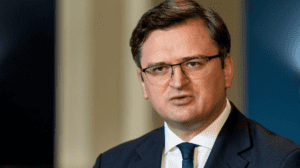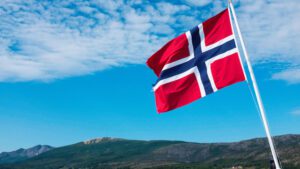
The Sardinian authorities are offering to pay people 15,000 euros each to move them to the island. The purpose of such “generosity” is to populate the rural areas of the region.
Who would have thought that an island with turquoise seas and white sandy beaches could face the problem of underpopulation? But many local residents leave small settlements due to lack of work.
To combat the outflow of the rural population, the authorities offer foreigners 15 thousand euros for resettlement on the coast of Sardinia. However, there is a prerequisite for participation in the program – this money must be used to repair a house in one of the settlements with a population of less than 3,000 people. Among such settlements are Galtelli and Calasetta.
“We have created conditions for young people to decide to stay and economically develop the most vulnerable territories,” said Cristian Solinas, head of the autonomous region of Sardinia.
Relocation applicants should note that the scheme is for a permanent move, not a vacation home. Moreover, the grant cannot exceed 50% of the purchase and repair cost. In total, 105 million euros were allocated for the project.
To receive a grant, applicants must register their place of residence in Sardinia, and they must do so within 18 months of arrival.
This is not the first time that the Italian government has offered monetary incentives for settling in rural areas. Earlier this year, a number of villages in the southern region of Calabria offered young people up to 28,000 euros.
Sardinia is the second largest island in the Mediterranean after Sicily.

Citizens of Brazil on Sunday will vote in a general election, which will determine the new president and vice president of the country, the composition of the National Congress (parliament), governors, lieutenant governors and deputies of state legislatures.
The main attention is riveted to the election of the head of state. Seven candidates are vying for the post, but two have the most support among the Brazilian population: incumbent President Jair Bolsonaro and former President Luiz Inacio Lula da Silva. Bolsonaro is a right-wing politician, while Lula da Silva represents the left.
According to the latest Datafolha poll before the vote, Lula da Silva could get 50% of the vote in the first round, and Bolsonaro – 36%. The remaining votes were distributed among five more candidates. Observers note that it cannot be ruled out that Lula da Silva, despite a large lead over Bolsonaro, will not be able to achieve election in the first round.
To win in the first round, a candidate needs to get more than 50% of the votes. If this fails, then a second round is held between the two strongest candidates.
Lula da Silva is 76 years old, he was previously going to take part in the 2018 elections, but he could not do it, as he was convicted and ended up in prison. Despite this, the Brazilians continued to have sympathy for him, and, judging by the polls, even behind bars, Lula da Silva remained the most popular politician in the country.
As a result, the Brazilian Workers’ Party nominated Fernando Addada as a presidential candidate in his place. This politician lost to the current President Bolsonaro.
Lula da Silva ruled Brazil from 2003 to 2010, and in 2017 he was sentenced to nine and a half years in prison for money laundering and corruption. Later, the term was increased to 12 years. He himself never admitted his guilt, his lawyers eventually managed to appeal the verdict. In 2021, the country’s Supreme Court annulled his anti-corruption conviction. Now he can run for reelection again.
Brazilians remember his period in office due to his socially oriented economic policy, and the current election program is also built with a leftist bias: he focuses on the poorest segments of the Brazilian population, promises to expand social programs and increase funding for infrastructure projects, intends to fight for the conservation of forests in the Amazon in in contrast to Bolsonaro, who was criticized for heavy deforestation during his term.
Bolsonaro, 67, is a former military and congressman who was known in Brazil for his controversial remarks about ethnic and sexual minorities and women, as well as for his far-right conservative views, even before he assumed the presidency, and has repeatedly expressed nostalgia for military dictatorship in Brazil.
Bolsonaro has been criticized by many Brazilians for what they see as downplaying the severity of the COVID-19 pandemic. Polls showed that the citizens of the country believe that there is corruption in the government under Bolsonaro and that he is incapable of governing the country. Polls conducted throughout August and September indicated that Bolsonaro’s approval rate had fallen to record lows, with between half and two-thirds of respondents disapproving of his work at various times.
During the election campaign, Bolsonaro continued to voice conservative views, promising to defend the traditional values of Christians, criticize the country’s electronic voting system and even members of the election commission that they are “working against him.” Brazilians will remember his campaign for scandals: Bolsonaro made harsh, radical statements, which were then actively distributed on social networks, once he got into a fight with a blogger who criticized him at a public event.
In addition, Brazilians on Sunday will elect 27 out of 81 senators, 513 members of the Chamber of Deputies, 27 governors and members of state legislatures.

On October 3-12, the first tour of the head of the Ukrainian Foreign Ministry to African countries in the history of Ukrainian diplomacy will take place, Minister Kuleba will begin the tour with a visit to Senegal.
As the press service of the Ministry of Foreign Affairs notes, the tour is an important element of the African strategy, developed at the Ministry of Foreign Affairs on behalf of the President of Ukraine Volodymyr Zelensky and which has become a “road map” for the development of relations between our state and the region.
The key topic of the minister’s talks will be the consolidation of political support for Ukraine from the countries of the global south against the backdrop of Russian aggression, in particular, the latest attempt to annex Ukrainian territories.
Other priorities of the negotiations will be strengthening the role of Ukraine as a guarantor of world food security, deepening cooperation in the field of education, promoting Ukrainian IT products, in particular the Action platform, creating new opportunities for Ukrainian exports using the capabilities of the Nazovni system. Within the framework of the visits, a number of business forums with the participation of leading Ukrainian and African companies are also planned.
The visits of the Foreign Minister will open a new section of cooperation with the countries of the African continent and will contribute to the implementation of Ukraine’s global and proactive diplomacy.
The minister’s tour will also be a preparation for a large-scale Ukraine-Africa conference.

The first hardcover edition of Harry Potter and the Philosopher’s Stone could go under the hammer in the UK for £150,000 (about $160,000).
Along with the first part of the wizarding saga, the “magic wand” that actor Daniel Radcliffe, in the form of Harry Potter, used during the filming of the film of the same name, will be put up for auction. The props are expected to sell for £30,000 ($32,000).
The auction is organized by Propstore, a collection company that collects movie and TV show props. It will take place from 3 to 6 November in London and is expected to sell about 1.5 thousand lots. The total revenue could exceed 11 million pounds (nearly $12 million).
Among the most expensive items are items such as the Superman costume worn by actor Christopher Reeve during filming in 1978-1987 and the Darth Vader gloves worn by David Prowse in Star Wars. Episode IV: A New Hope”.
The Propstore Auction will sell props from the James Bond movies, the Marvel and DC franchises, as well as movies like The Shawshank Redemption and Gladiator.

The Norwegian authorities, following Finland, are considering the possibility of closing the Russian-Norwegian border for Russian citizens to cross it against the backdrop of a full-scale war unleashed by Russia against Ukraine, the country’s government said on Friday.
“If necessary, we will quickly close the border, the changes can take effect as soon as possible. Compared to Finland, fewer people arrive in Norway, and the situation is different here. Storskog is the only border crossing with Russia. We are in close dialogue with the police and customs about the situation at the border and carefully screening everyone who arrives,” Minister of Justice and Emergencies Emily Enger Mehl explained.
As noted in the government, the partial mobilization announced in Russia and a possible travel ban for Russian citizens may increase the risk of illegal border crossing by the Russian Federation against the backdrop of Russia’s escalation of military aggression in Ukraine. From Friday, police helicopters will overfly the Finnmark region. The police also control Storskog and the area beyond.
According to the Minister of Justice and Emergencies, the police helicopter is a useful tool for monitoring the border area from the Norwegian side.
The authorities also recalled that in May, Norway tightened the requirements for issuing visas to Russians, in particular, there were significantly fewer tourist visas issued.

From the beginning of the 2022/2023 marketing year (MY, began on July 1-2022) and until September 30, Ukraine exported 8.58 million tons of grain crops, of which 4.78 million tons of corn (55.7% of total supplies), 3, 0 million tons of wheat (35%) and 762 thousand tons of barley (8%).
As reported on the website of the Ministry of Agrarian Policy and Food on Friday, since the beginning of the current marketing year, the rate of grain exports is 40.2% lower than the same period of the last marketing year (14.36 million tons were exported from July 1 to September 30, 2021).
According to the agency, from the beginning of 2022/2023 MY and until September 30, 2022, Ukraine exported 3 million tons of wheat (2.97 times less compared to the same date in 2021/2022 MY), 762 thousand tons of barley (4.96 times less), 3.4 thousand tons of rye (12.5 times less) and 23.9 thousand tons of flour (34.6% less). At the same time, the pace of corn exports exceeded last year’s volumes – 4.78 million tons were exported, which is 3.34 times higher than in 2021/2022 MY.
It is specified that in general, since the beginning of September, 4.28 million grains and leguminous crops have been exported, including 1.75 million tons of wheat, 2.08 million tons of corn, 432 thousand tons of barley, 11.8 thousand tons of flour and 3 .4 thousand tons of rye. In addition, the ministry announced the volume of exports for the last reporting period on September 26-30, during which 1.07 million tons of grain were sent abroad, including 398 thousand tons of wheat, 543 thousand tons of corn, 127 thousand tons of barley, 1.9 thousand tons of flour and 1.3 thousand tons of rye.
Thus, according to the data of the ministry, for four days on September 26-30, the record average daily volumes of grain since the beginning of the war were delivered to foreign markets – 267.5 thousand tons / day, while for the reporting period of September 21-26 – 126 thousand tons daily , for September 9-21 – an average of 132.5 thousand tons daily, August 31-September 9 – 147.8 thousand tons daily, and August 26-31 – 110 thousand tons / day. Thus, the average daily export rates over the past 4 days have jumped 2.12 times compared to the previous period on September 21-26 due to the intensification of transportation of agricultural products through the seaports of Ukraine.
As reported, in the 2021/2022 marketing year, Ukraine exported 48.51 million tons of grains and legumes, which is 8.4% higher than the previous marketing year, despite the full-scale invasion of the Russian Federation and difficulties with the export of agricultural products due to the blockade of Ukrainian seaports. 18.74 million tons of wheat were delivered to foreign markets (12.6% more than in 2020/2021MY), 23.54 million tons of corn (+1.9%), 5.75 million tons of barley (+35.9%) , 70.9 thousand tons of flour (-44.1%).
In 2020/2021 MY, the country exported 44.72 million tons of grain and leguminous crops: 16.64 million tons of wheat, 23.08 million tons of corn, 4.23 million tons of barley, 126.9 thousand tons of flour and 18.4 thousand . tons of rye.
In 2019/2020 MY, Ukraine exported 56.72 million tons of grain and leguminous crops.